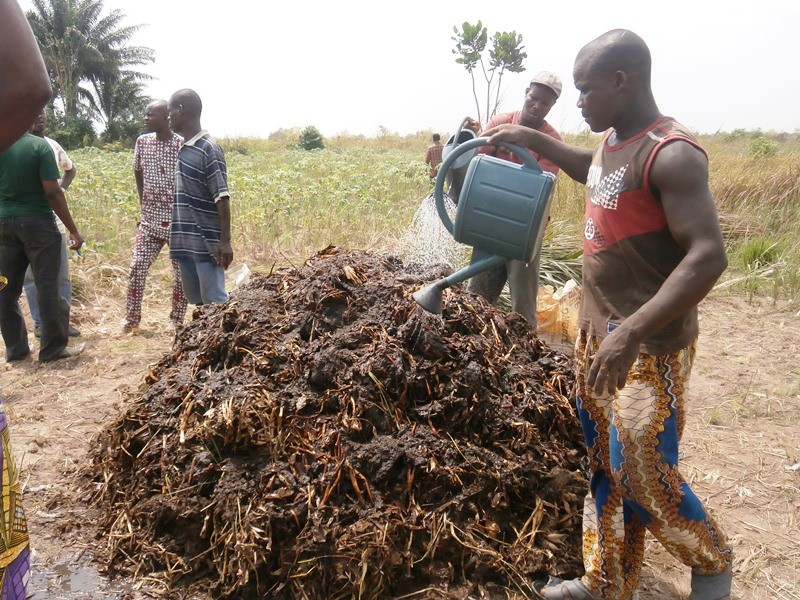Since the establishment of ACED in 2009, our mission has not changed; we aim to improve sustainable food and nutrition security in Benin. We also work to develop local solutions that can help address the global challenges of climate change, natural resource degradation, urban poverty, and youth unemployment. The purpose of this report is to synthesize the impacts of ACED’s interventions in Benin over the past 10 years.
When the ACED team first formed, we were not fully aware of what it would take to set-up and run a non-profit organization – for instance, how to mobilize resources, or how to create lasting impact. Despite this, aer completing the registration process and establishing basic governance and management systems in 2009, we started implementing pilot activities on a small scale. With funding from the United Nations Voluntary Fund for Indigenous People, for example, we supported 10 youths to launch agribusiness activities in their rural communities between 2010 and 2012. During the same period, and with support from the UK charity, Artists’ Project Earth, we also organized a campaign on climate change to engage Benin’s rural communities on issues related to climate vulnerability and adaptation options. In 2013, in partnership with Gevalor, we went on to launch our first fully-fledged initiative on water hyacinth, which was funded by the French Global Environment Facility.
From the beginning, in order to achieve impact over a range of development challenges, our interventions aimed to generate evidence that would influence policy and practice and that, ultimately, would demonstrate to other non-profits how to design sustainable interventions.
To achieve this, we combined research, policy and local action to implement activities that create long-lasting change for the most vulnerable communities. Our initiatives have worked directly with agricultural communities to improve, for instance, smallholder productivity, access to technologies and markets, and resilience to climate change, whilst others have focused on creating income-generating activities through the protection of local resources. Working with various stakeholders, particularly agricultural communities, researchers, policymakers and non-state actors, has been central to the successes highlighted in this document. We have learned so much in the last 10 years, and confidently embrace the next decade and the opportunities it will bring. For the future, our focus will be to build an effective and sustainable organization by increasing our capacity to deliver results, to improve our governance systems, and diversify our funding sources. In 2030, we hope to publish a similar report – but one that demonstrates more wide-reaching impacts enabled by a stronger organization.


